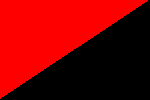COSATU's 6th CONGRESS:
Defend, consolidate, advance!
2,300 worker delegates attended the Congress of SA Trade Unions
6th National Congress on the 16-19 September 1997. Also present were
international unions, ANC and SA Communist Party.
BUILDING ORGANISATION
It was resolved to strengthen COSATU locals and regionals, to
develop shop stewards, and to establish regular mini-conferences
(Central Committee (CC)) between Congresses. Congress also resolved
to develop women workers' leadership.
There was some centralisation- COSATU affiliates will merge into 6
super-unions. All six national Office Bearers are now full-time
officials. The federation has increased power to discipline
affiliates. COSATU will approach FEDUSA and NACTU to promote union
unity.
THE ALLIANCE
COSATU reaffirmed its commitment to the Triple Alliance of
ANC-COSATU-SACP. It will support ANC in the 1999 elections. COSATU
resolved to help build and fund the SACP. COSATU has restated its
commitment to socialism.
Concretely, COSATU wants to use the Alliance as a tool for
transformation: to increase its "working class bias" in the "national
democratic revolution".
In particular, COSATU hopes that it can win support for its own
economic policies: "decisive" State intervention in economic growth,
training, and basic social services. COSATU also believes that
workplace "democratisation" will promote growth. COSATU will still
use NEDLAC, the body in which business, unions and government discuss
labour law and development issues.
COSATU rejected the ANC government's GEAR policy, which centres on
privatisation, subsidy cuts, and "downsizing" the public service.
INTERNATIONAL UNITY
COSATU resolved to build "international workers unity" and fight
attacks on workers. It has now joined the International Confederation
of Free Trade Unions, and is committed to building solidarity with
unions in Southern Africa and elsewhere. COSATU will also campaign
for democracy and worker rights in Nigeria, Swaziland, Western
Australia and Indonesia.
WHICH WAY AHEAD? SOME QUESTIONS
The Congress was a real milestone. It shows the unions continued
defence of socialism and workers unity across race, sex, and national
divisions.
But questions remain.
Firstly, it is well known that the ANC in government has
repeatedly adopted anti-worker policies. These include GEAR,
electricity cut-offs and arrests of strikers. The Alliance structures
have proved unable to make the ANC change its course. More worker
influence will not change this- ANC is driven to the positions it
takes by the fact that it includes capitalist groups, and by the fact
that it is involved in the capitalist government. COSATU would be in
a better position to fight for workers' rights if its was not tied to
ANC.
Secondly, what do we mean by "socialism"? Is socialism simply a
strong government? Clearly not- the apartheid regime intervened in
the economy. Socialism does not mean a "nicer" capitalism- while
reforms are important, it is true that as long as there are bosses
and rulers, workers will never be free. In the end, socialism will
require a revolution by mobilised workers-not reforms from above.
Thirdly, we need to start drawing the lessons of NEDLAC.
Throughout the world involvement in such structures has never brought
gains to workers. Instead, it has eroded workers control of the
unions. NEDLAC has failed to stop the GEAR policy, or win workers
demands in Labour Relations Act or Basic Conditions of Employment
Act. Most workers have never even heard of NEDLAC- a clear danger
signal. We must leave NEDLAC before it damages our unions. We must
rely on mass action - not "policy work" - to win real gains.
Next, Congress failed to take a clear position on union investment
arms. These bodies- set up to invest union money- pose incredible
dangers to the unions. Few unions have any clear mandate for their
operation, or clear structures to keep them under workers control. In
NUM, officials such as Marcel Golding have used these bodies to make
millions of rands for themselves. We face a massive crisis if union
activists start to see the unions as a route to big money.
Also, many investment arms have been involved in business
consortiums that bought up privatised firms and other companies.
The result has been crisis for unions such as SARHWU, as union
investment arms have sat across the table from shop-floor delegates
in negotiations over retrenchments and wages. The result is a divided
union. How can we fight effectively if sections of our union have
joined the bosses? Unions should not be actively involved in business
deals. This is corrupting. Union money should be left in the bank,
and used to fund organising drives, support strikes and a daily
workers newspaper.
Lastly, the increase in the number of paid officials could pose
real dangers. The growth of a centralised, full-time leadership
undermines worker control of unions, leading to conflicts between
ordinary members and a bureaucratic leadership removed from the shop
floor. We should avoid setting up full-time posts, and keep power in
the grassroots and shop-steward structures.

This page hosted by  Get your own
Free Home Page
Get your own
Free Home Page
 Go to the
CapitolHill GeoPage
Go to the
CapitolHill GeoPage